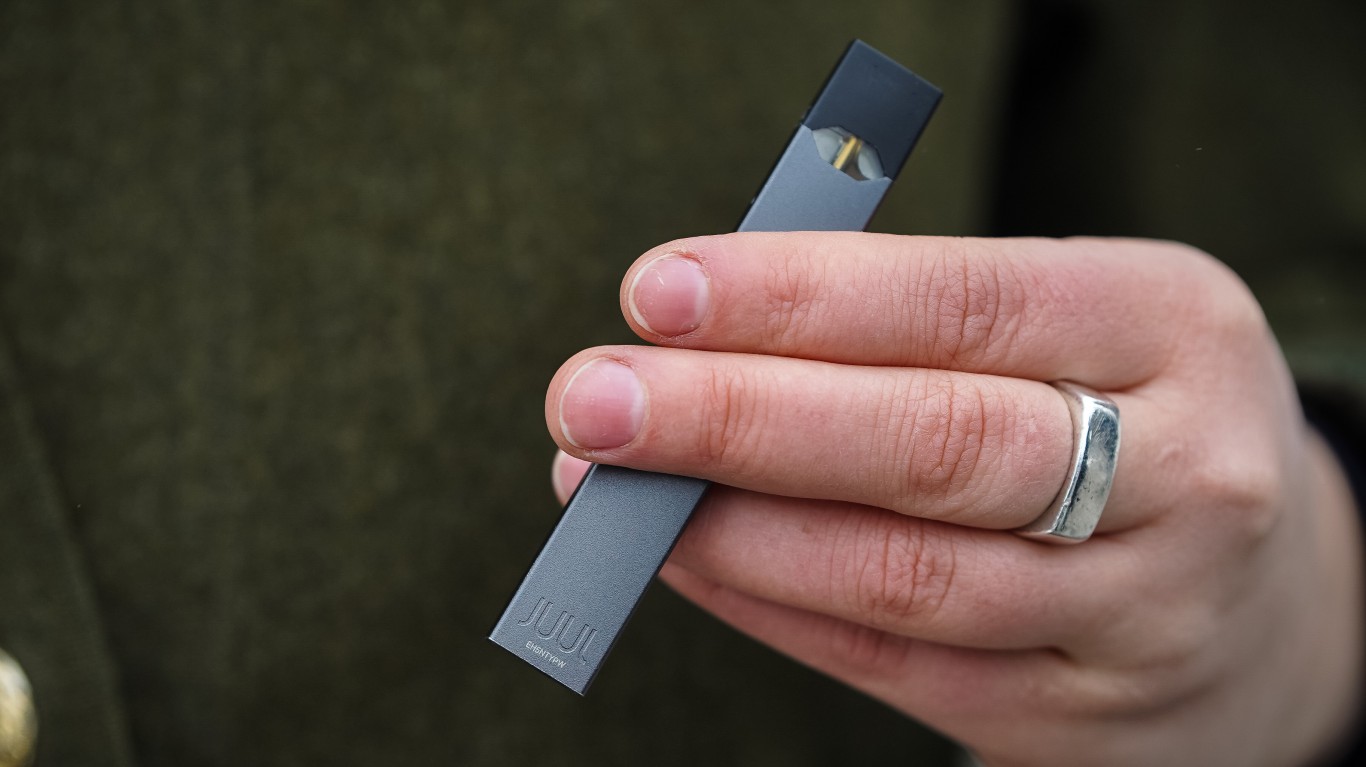Consumer Electronics
Will High Prices for Juul Pods Accomplish What the FDA and Mitch McConnell Can't?

Published:
Last Updated:

Last November, responding to pressure from the U.S. Food and Drug Administration (FDA), e-cigarette maker Juul discontinued retail store sales of some of its flavored nicotine pods. The liquids, with flavors like mango and creme, were found to be a strong driver for teens too young to purchase the pods. Juul continues to sell the flavors on its company website to users who can prove they are at least 21 years old.
So what happens when someone tells teenagers they can’t have something? That was a rhetorical question.
Because the popular flavors are still be sold at the same $16 price for four pods to online buyers who meet the age requirement, at least some of the legally purchased pods are resold to younger users for as much as $35, according to a report at MarketWatch.
This past March, then FDA Chair Dr. Scott Gottlieb took several actions to curb the sale of nicotine products of any kind to people under 18. Gottlieb, a seemingly tireless crusader against cigarettes and other combustible tobacco products, also believed that the noncombustible nicotine delivery systems were far less harmful to adults addicted to nicotine and, as a result, vaping had a place in a public health program. That was in 2017.
By the following year, teen use of vaping devices and e-cigarettes increased by 78% among high school students and by 48% among middle school students. Nearly 28% were using the noncombustible products regularly, and more than two-thirds were using the flavored products.
The danger to public health, according to Gottlieb, is that teenage users of nicotine vaping products are more likely to try combustible cigarettes later on in their lives. The sweetened products were far more appealing to young users: only 20% of teens used menthol, tobacco and mint products, compared to twice as many older users who used those flavors. Because adult users also purchased the sweetened products, Gottlieb said he did not want to ban those flavors and make combustible products with the flavors more attractive to people who wanted to quit smoking cigarettes.
In April, shortly before leaving office, Gottlieb indicated that e-cigarettes were “threatening” the FDA’s commitment to reduce tobacco use among the nation’s children. The agency also is studying reports of seizures in teens who use e-cigarette products.
Senate Majority Leader Mitch McConnell has proposed legislation that would ban the sale of all nicotine delivery systems, combustible or noncombustible, to Americans over the age of 21. The Kentucky senator acknowledges his state’s history of tobacco growing, and critics have pointed out that the vaping and tobacco industries support the bill he is co-sponsoring with Virginia Democrat Tim Kaine.
The FDA in March released draft rules that would require flavored-pod makers to get FDA permission to sell the pods that are already on the market and to get approval for the products’ marketing campaigns beginning in August 2021.
San Francisco’s board of supervisors is set to vote on Tuesday on a measure banning the sale, distribution and manufacturing of e-cigarettes until the FDA reviews and approves the products. That is currently scheduled to happen by 2022. One effect of such a rule would leave combustible products as the only choice for adult smokers.
But would it stop teen vaping? One New Jersey high school Juul user who is 16 years old told MarketWatch that she and her friends would continue to use the products: “I’m 16 now, so I’m already doing it underage if the age is 18.” While some teens have complained about the high prices for pods, that does not appear to be compelling enough to get the kids to quit either.
Start by taking a quick retirement quiz from SmartAsset that will match you with up to 3 financial advisors that serve your area and beyond in 5 minutes, or less.
Each advisor has been vetted by SmartAsset and is held to a fiduciary standard to act in your best interests.
Here’s how it works:
1. Answer SmartAsset advisor match quiz
2. Review your pre-screened matches at your leisure. Check out the advisors’ profiles.
3. Speak with advisors at no cost to you. Have an introductory call on the phone or introduction in person and choose whom to work with in the future
Thank you for reading! Have some feedback for us?
Contact the 24/7 Wall St. editorial team.